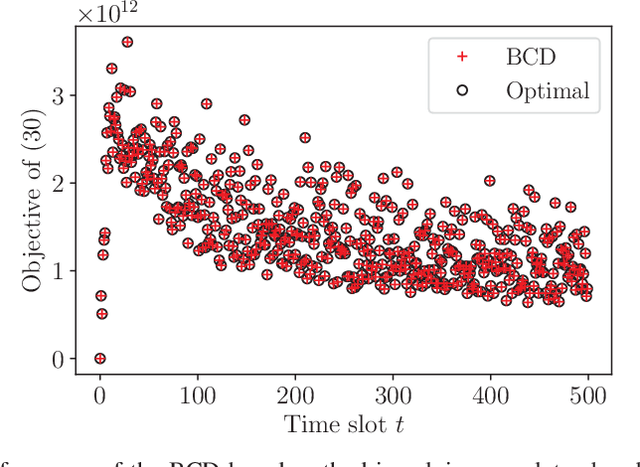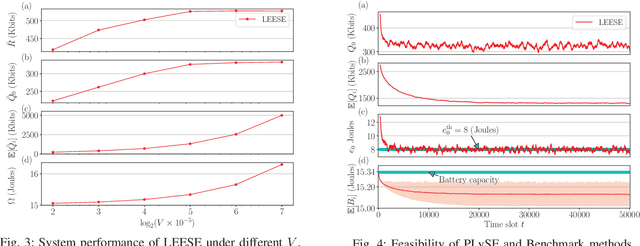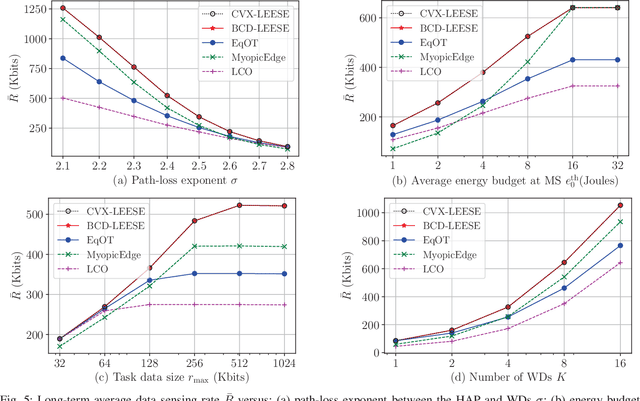Energy-Efficient Online Data Sensing and Processing in Wireless Powered Edge Computing Systems
Paper and Code
Nov 04, 2021



This paper focuses on developing energy-efficient online data processing strategy of wireless powered MEC systems under stochastic fading channels. In particular, we consider a hybrid access point (HAP) transmitting RF energy to and processing the sensing data offloaded from multiple WDs. Under an average power constraint of the HAP, we aim to maximize the long-term average data sensing rate of the WDs while maintaining task data queue stability. We formulate the problem as a multi-stage stochastic optimization to control the energy transfer and task data processing in sequential time slots. Without the knowledge of future channel fading, it is very challenging to determine the sequential control actions that are tightly coupled by the battery and data buffer dynamics. To solve the problem, we propose an online algorithm named LEESE that applies the perturbed Lyapunov optimization technique to decompose the multi-stage stochastic problem into per-slot deterministic optimization problems. We show that each per-slot problem can be equivalently transformed into a convex optimization problem. To facilitate online implementation in large-scale MEC systems, instead of solving the per-slot problem with off-the-shelf convex algorithms, we propose a block coordinate descent (BCD)-based method that produces close-to-optimal solution in less than 0.04\% of the computation delay. Simulation results demonstrate that the proposed LEESE algorithm can provide 21.9\% higher data sensing rate than the representative benchmark methods considered, while incurring sub-millisecond computation delay suitable for real-time control under fading channel.
 Add to Chrome
Add to Chrome Add to Firefox
Add to Firefox Add to Edge
Add to Edge